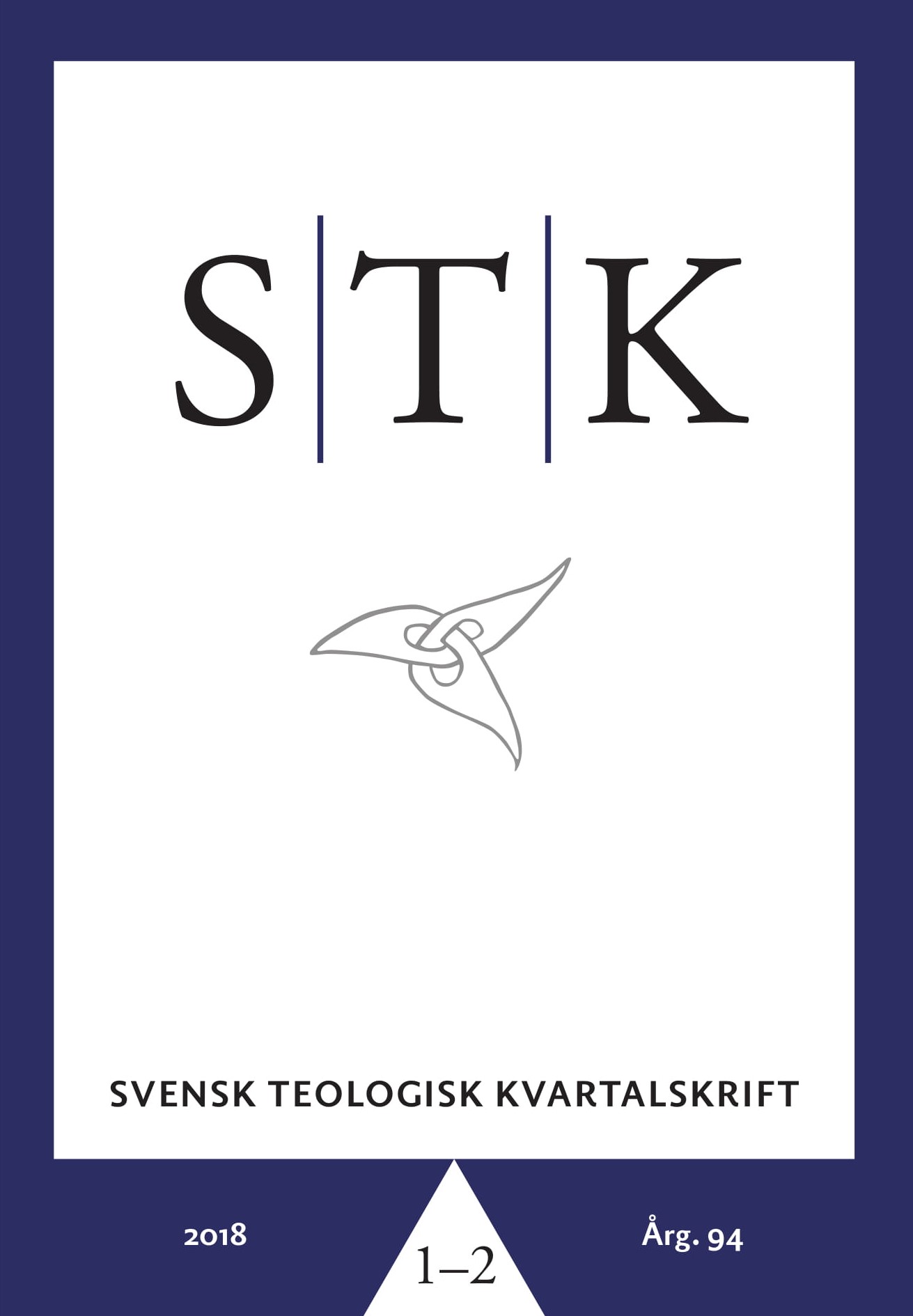Bortom kyrka och sekt
En nutida radikalreformatorisk revidering av Ernst Troeltschs kyrka–sekt-typologi
Abstract
The church-sect typology of Ernst Troeltsch has often been criticized over the years, from both sociological and theological standpoints, and it is incompatible with the religious landscape of today. In this article the contemporary Radical Reformation theology, especially as it is formulated by Arne Rasmusson, is used to construct a revision of the typology. Since the Radical Reformation is the major example for the sect-type in Troeltsch's description it can constructively work within the typological framework to see where it needs to be extended. The typology of Troeltsch consists of an accepting–rejecting axis, but the Radical Reformation theology is able to show the necessity of an incorporation of a collective–individual axis over the original axis. This results in a dividing of the church-type into a more Roman Catholic and a more Lutheran type, and the dividing of the sect-type into a more Radical Reformation and a more pietistic or charismatic type. This construction is found to be a political typology, since it is able to show both the differences and similarities between the more and less political Christian movements. It also shows an ability to move from pejorative terms to a more contextual terminology, inasmuch at it opens up for the use of the contextual names of the more influential Christian movements.
Downloads
Published
Issue
Section
License
Copyright (c) 2019 Holger Klintenberg

This work is licensed under a Creative Commons Attribution-NonCommercial-NoDerivatives 4.0 International License.


